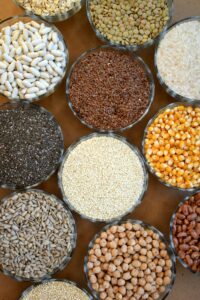
How responsible forestry can be part of a plastic pollution solution
Press release While life without plastic might be hard to imagine, there is a renewable, recyclable and sustainable alternative to single-use plastics and many other
Every year 90 000 workers arrive on citrus farms across the country in order to work for seven months harvesting fruit. Another 30000 are employed in packhouses to pack fruit into cartons and onto pallets. Additional workers are employed in transporting the fruit to the ports, cold stores and stuffing the fruit into containers before it arrives at the port facilities.
Once the fruit is picked it starts to die – as a result it is imperative that the movement of the fruit through the supply chain is as quick as possible. Delays impact on the quality of the fruit, and its shelf life overseas. It is estimated that each worker in South Africa has ten dependents – about one million South Africans depend on the citrus industry for their livelihoods.
These workers pick and pack 9 billion pieces of fruit. If one put these pieces of fruit shoulder to shoulder they would go around the earth 18 times.
Every one of these pieces of fruit passes through one of 4 ports in South Africa –Durban, Coega, Port Elizabeth and Cape Town. The biggest market is Europe; however, fruit goes to over 120 countries worldwide.
The value of the fruit is only realized once it passes through the till point in the destination market. This value is seriously compromised if there are quality issues –and many times these quality issues are attributed to delays in the supply chain, or disruptions in the cold chain. It is therefore vitally important that ports operate at optimum efficiency. Delays at port can impact on fruit quality on arrival, and seriously harm South Africa’s reputation as an exporter of good quality fruit. South Africa has built up an excellent reputation in the market. This excellent quality is largely attributable to our research and technology which informs the way fruit is produced, packed and transported, high level of sophistication amongst growers and packers, and our excellent logistics.
Unfortunately, the last 2 years have impacted negatively on this reputation. The port problems in the Eastern Cape in 2019 meant that fruit arrived in the market in terrible condition – South Africa’s reputation took a knock and there were many quality claims. In 2020 a similar situation developed with the problems at Cape Town port. Some fruit that was harvested only reached market 2 months later. Importers have taken note of the delays, and the industry has noticed some importers hedging their bets by approaching competing suppliers. We must ensure that our reputation is safeguarded, once your reputation is lost, it is hard to regain.
The last 2 years’ performance has also meant that exporters are looking at alternative ports –we are aware of significant investments in Maputo and Walvis Bay ports. In the case of Maputo – it is also closer to northern citrus growing regions than Durban. Once the road, rail and border crossing are addressed –there is a danger that exporters of fruit from the north could switch to that port – which would be detrimental to job opportunities in South Africa.
Durban port has long been touted as the gateway to southern Africa –this status is under threat unless port efficiency and congestion is improved. We have noted with appreciation the procurement plan that Transnet has shared with industry –this is long overdue and must be fast tracked. If the work force is to be motivated and expected to perform, they must have the tools to do the job.
Maintenance and replacement of equipment at the ports has been neglected –meaning that the ability to perform efficiently is impacted. As a result, efficiency measures show that South African ports perform poorly compared to international standards. The new procurement plan will go a long way to addressing this.
In conclusion –the citrus industry touches on the wellbeing of many South Africans –and all of us in the value chain have a responsibility to each other to act efficiently and effectively in the export of this precious cargo.
Photo by Stiven Bravo on Unsplash
Relevant pages in AgribookDigital include:

Press release While life without plastic might be hard to imagine, there is a renewable, recyclable and sustainable alternative to single-use plastics and many other

According to a new report by Boston Consulting Group (BCG) entitled The Whole Truth about Whole Grains, there is huge opportunity in food system transformation,

Press release The Department of Agriculture, Land Reform and Rural Development (DALRRD) and the Department of Trade, Industry and Competition (the dtic) have announced that